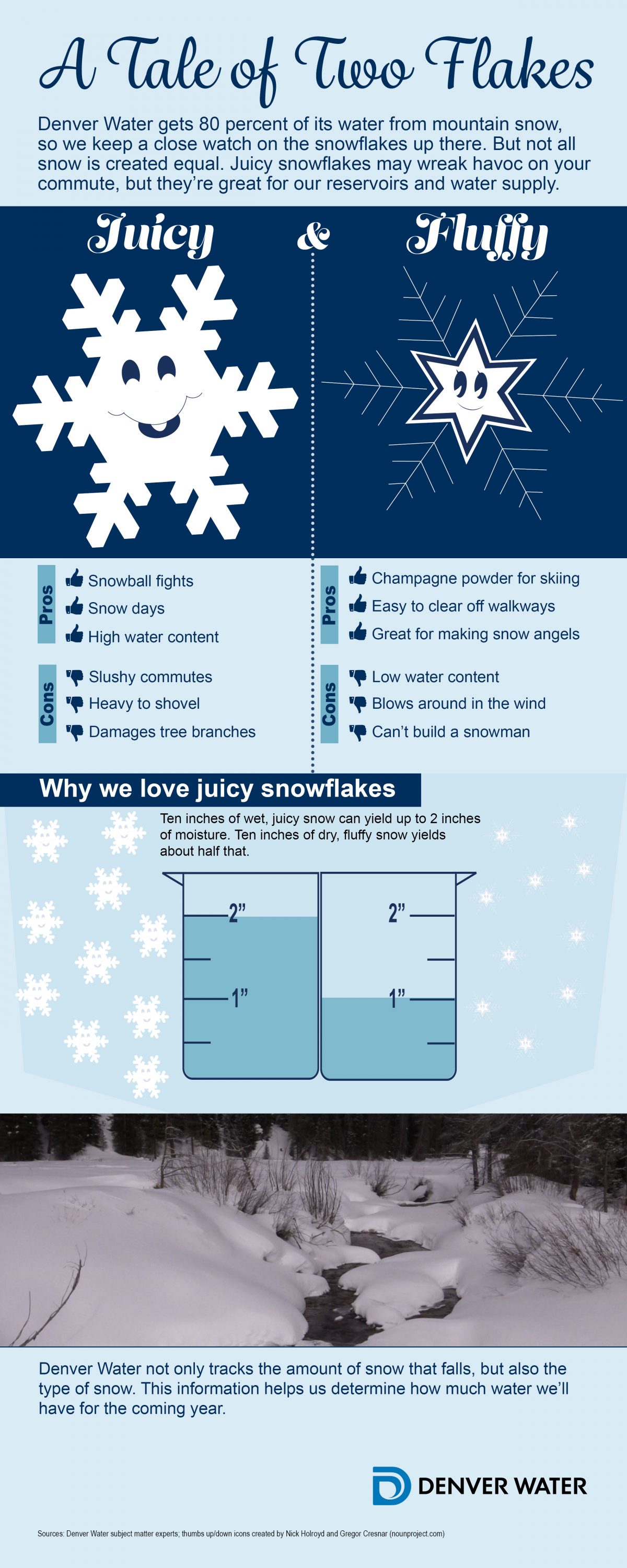
February was snowy, but was it the snowiest?
Breckenridge Resort reported on Twitter their snowiest February ever — and that was on Feb. 17, only half way through the month.
Breckenridge's snow month was also great news for Denver’s water planners as the resort is part of the 4,000-square-mile collection system that ultimately sustains the water supply for the metro area.
But, was February a record-breaking month across all of Denver Water's collection system?
Close, but not quite.
“For us, the important measurement is the Snow Water Equivalent, and while February’s numbers were great, they weren’t quite record breaking for us,” said Nathan Elder, manager of water supply at Denver Water.
Snowpack is a measure of the snow water equivalent, which is the estimated amount of water contained in the mountain snow if it melted. Denver Water gets its snowpack information from automated SNOTEL stations and monthly measurements on the ground by its mountain reservoir caretakers.
In Denver Water’s Colorado River Basin collection system, which Breckenridge snowpack helps feed, it was the third-best February. At 5.1 inches of Snow Water Equivalent, or SWE, it fell right behind the 5.2 inches of SWE measured in 1986 and the 5.4 inches measured in 1993.
On the east side of the Continental Divide, where 50% of Denver’s water comes from, the South Platte River Basin's February SWE ranked fifth on record, at 3.6 inches of SWE.
Across Denver Water's collection system, February's series of storms resulted in a snowpack that was about 200% of normal for the month. February also was the best-producing month so far this season.
What that means for the amount of water produced depends on many factors, including how “juicy” the snowflakes are.


